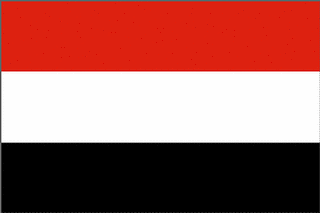The Georgian government and the International Monetary Fund remain at odds over ways to close the Caucasus country’s widening budget deficit, and over other measures to improve economic policy
Published:
20 July 2003 y., Sunday
The IMF has given Georgian officials until mid August to implement reforms in several specified areas. At stake for Tbilisi is not only direct IMF assistance, but also the Georgian government’s ability to reschedule its Paris Club debt.
An IMF delegation wrapped up a fact-finding mission to Georgia on July 7. At the conclusion of the visit, IMF representatives issued a memorandum stating that its ability to complete a final review of a nearly three-year-old Poverty Reduction and Growth Facility (PRGF) was dependent on the Georgian government’s willingness to carry out targeted reforms. The IMF set August 15 as the deadline for Tbilisi for reforms, including: trimming roughly 100 million lari (about $47 million) from the state budget; improving tax collection while simplifying the tax code; raising energy tariffs; and settling arrears to the state pension system.
If Georgia is unable to implement the changes, the IMF is likely to withhold the final tranche of a $31 million loan under the PRGF. Of far greater importance for Georgia, the IMF has threatened to withdraw its support for Tbilisi’s efforts to get its Paris Club debt rescheduled. Talks between Georgia and the Paris Club of creditor nations are scheduled to occur in September. If Tbilisi is unable to reschedule the debt, it faces a potentially budget-busting $50 million payment by the end of 2003.
"We’ve been trying to complete this [PRGF] review since November," IMF Resident Representative to Georgia Jonathan Dunn told EurasiaNet. However, Dunn stressed that the IMF "has left the door cracked open" for Georgia to make the demanded policy changes.
The IMF stance creates a quandary for Georgia’s government, as parliamentary elections loom in November. [For background see the Eurasia Insight archives]. Implementation of the IMF-mandated reforms could stir popular dissatisfaction, possibly costing President Eduard Shevardnadze supporters at the polls in November. Conversely, inaction by the government, especially concerning the Paris Club debt rescheduling, could create an even bigger public backlash. Either way, Georgia seems to be facing its last opportunity to implement reforms and avoid severe fiscal strain, possibly even default.
Šaltinis:
eurasianet.org
Copying, publishing, announcing any information from the News.lt portal without written permission of News.lt editorial office is prohibited.
The most popular articles
 The EBRD is making a €4 million equity investment in Geofoto, a Croatian geodetic company offering mapping, geodetic survey, photogrammetry, geoinformatics and aerial survey services, to support its drive to expand operations on international level.
more »
The EBRD is making a €4 million equity investment in Geofoto, a Croatian geodetic company offering mapping, geodetic survey, photogrammetry, geoinformatics and aerial survey services, to support its drive to expand operations on international level.
more »
 Nordea came out of 2009 in an even stronger position, despite one of the most challenging years for decades. Risk-adjusted profit increased 22% and our capital position and cost of funding are among the best in Europe.
more »
Nordea came out of 2009 in an even stronger position, despite one of the most challenging years for decades. Risk-adjusted profit increased 22% and our capital position and cost of funding are among the best in Europe.
more »
 MEPs gave the green light on Thursday for EU funding to help Europe's unemployed start up small businesses.
more »
MEPs gave the green light on Thursday for EU funding to help Europe's unemployed start up small businesses.
more »
 MEPs are deeply concerned about the long-standing and growing presence of al-Qaeda, and the deteriorating security, social and economic problems in Yemen, which they think could destabilise neighbouring countries.
more »
MEPs are deeply concerned about the long-standing and growing presence of al-Qaeda, and the deteriorating security, social and economic problems in Yemen, which they think could destabilise neighbouring countries.
more »
 At the start of a new decade, Sub Saharan Africa is reeling from the effects of three major global crises – food, fuel and financial – that have reversed many of the economic achievements of the last 10 years and left some growth projections at levels below those of 30 years ago.
more »
At the start of a new decade, Sub Saharan Africa is reeling from the effects of three major global crises – food, fuel and financial – that have reversed many of the economic achievements of the last 10 years and left some growth projections at levels below those of 30 years ago.
more »
 The 5th High-level Seminar of Central Banks in the East Asia-Pacific Region and the Euro Area was jointly organised by the European Central Bank and the Reserve Bank of Australia, in cooperation with the Hong Kong Monetary Authority.
more »
The 5th High-level Seminar of Central Banks in the East Asia-Pacific Region and the Euro Area was jointly organised by the European Central Bank and the Reserve Bank of Australia, in cooperation with the Hong Kong Monetary Authority.
more »
 The EBRD and European Fund for Southeast Europe are boosting the availability of financing to private businesses in Moldova with a $10 million loan to ProCredit Bank in Moldova for on-lending to micro and small enterprises.
more »
The EBRD and European Fund for Southeast Europe are boosting the availability of financing to private businesses in Moldova with a $10 million loan to ProCredit Bank in Moldova for on-lending to micro and small enterprises.
more »
 The EBRD is supporting the development of the retail infrastructure in Croatia with a €68 million loan to finance the construction of a modern shopping centre in Split, the second largest city in Croatia.
more »
The EBRD is supporting the development of the retail infrastructure in Croatia with a €68 million loan to finance the construction of a modern shopping centre in Split, the second largest city in Croatia.
more »
 The European Bank for Reconstruction and Development has agreed to sell its 15 percent stake in OAO Swedbank Russia to its parent and major stakeholder, Sweden’s Swedbank AB, a move which would give it full ownership of its Russian subsidiary.
more »
The European Bank for Reconstruction and Development has agreed to sell its 15 percent stake in OAO Swedbank Russia to its parent and major stakeholder, Sweden’s Swedbank AB, a move which would give it full ownership of its Russian subsidiary.
more »
 The Ministers of Industry took the first steps in San Sebastián today to make the electric vehicle a reality in Europe and agreed that European institutions, with the EC at the head, should lead a common strategy on electric vehicles.
more »
The Ministers of Industry took the first steps in San Sebastián today to make the electric vehicle a reality in Europe and agreed that European institutions, with the EC at the head, should lead a common strategy on electric vehicles.
more »